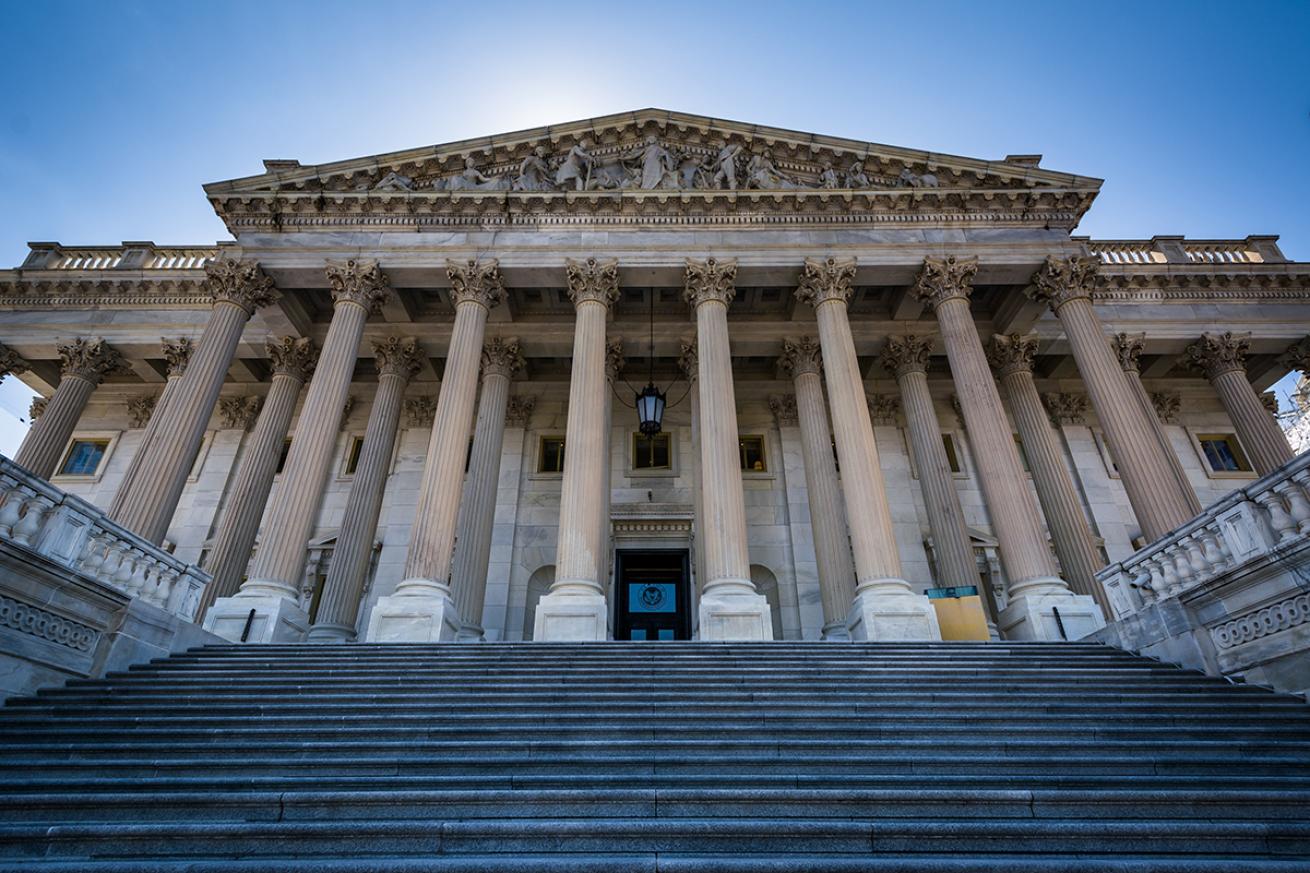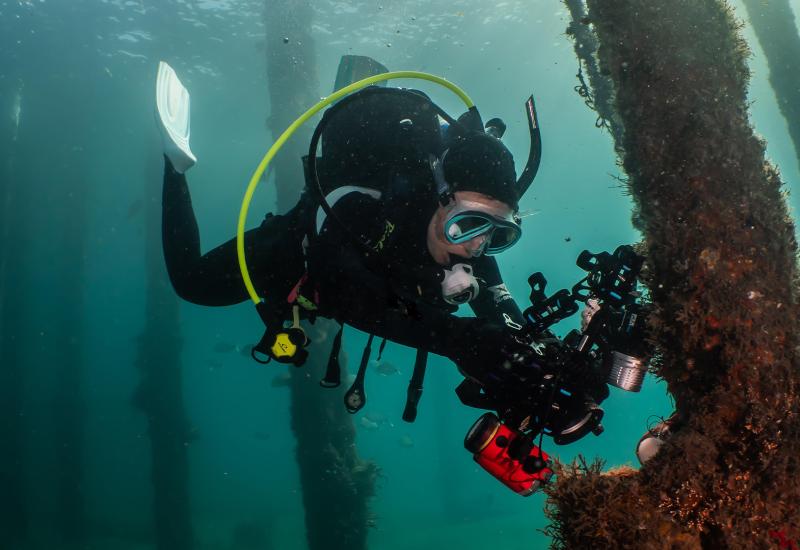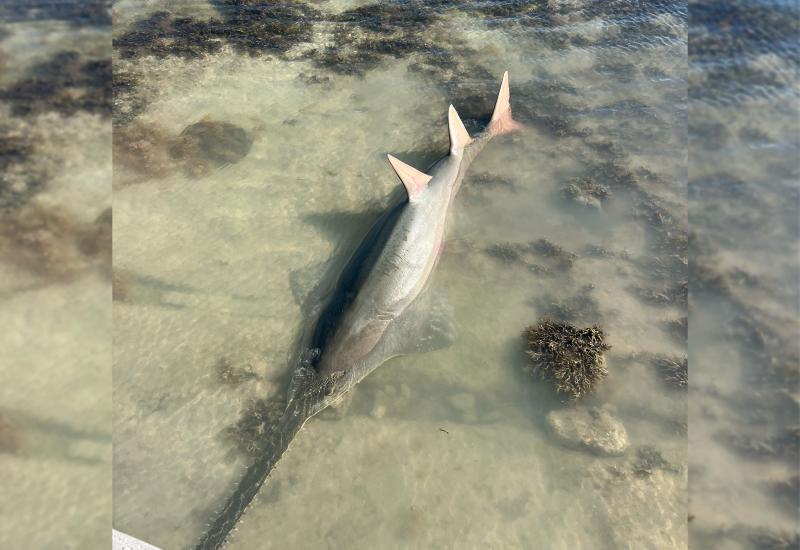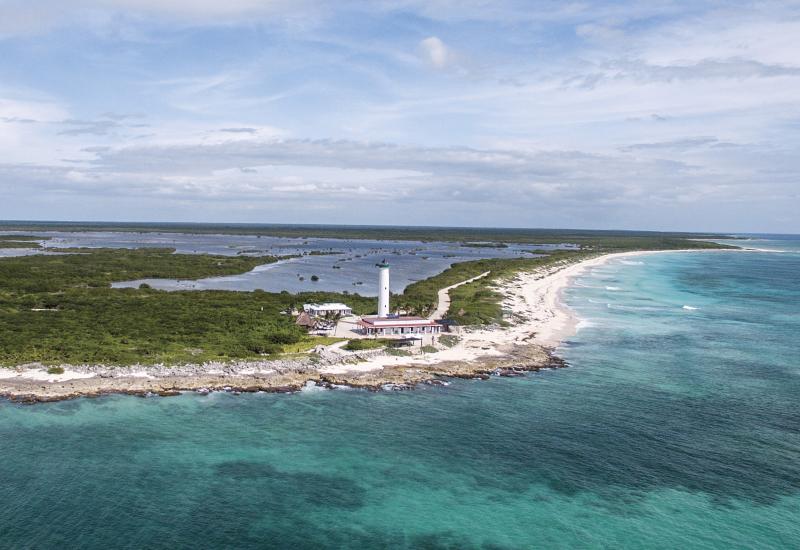House Bill Aims to Shift New Offshore Energy Projects from Drilling to Wind

Shutterstock.com/Jon BilousEnergy generation, coral protection, shipping speeds, marine protected area goals and wetland recovery are some of the ocean-related topics addressed in the new bill.
A bill introduced in the House on Tuesday seeks to reshape America’s offshore energy production, ceasing the issuance of new oil and gas leases on the Outer Continental Shelf while mandating the permit of offshore wind farms.
“Crucially, the Ocean-Based Climate Solutions Act captures and reduces carbon dioxide by creating a pathway forward for renewable offshore energy and enhances natural carbon capture and storage in ocean ecosystems,'' said Rep. Raúl Grijalva (D-Arizona), lead sponsor of the bill and chair of the House Natural Resources Committee, in a digital press conference announcing the bill.
The bill mandates the Secretary of the Interior seek to permit at least 12.5 gigawatts of offshore wind energy production on the United States’ Outer Continental Shelf (enough to power about 3.75 million homes, according to the American Wind Energy Association) by January 1, 2025, and at least 25 gigawatts by the start of 2030.
The 30-megawatt Block Island Wind Farm, the nation’s first offshore wind farm, came online in 2016. Construction on a second project, the 12-megawatt Coastal Virginia Offshore Wind, finished this June, and it is anticipated to begin energy production by the end of the year.
“The legislation brings our offshore wind policy up to speed,” said Rep. Alan Lowenthal (D-California), chair of the House Natural Resources Subcommittee on Energy and Mineral Resources, during the bill press conference. “And by setting measurable goals, which is critically important, we can ensure we are on track to meet our renewable energy demands and create thousands of jobs in this process.”
“The American Wind Energy Association expects 30 gigawatts of offshore wind by 2030 will produce 83,000 jobs and $25 billion in annual economic output,” said the trade association’s CEO, Tom Kiernan, in a written statement. “This act will go a long way in realizing those benefits.”
The bill also prohibits new oil and gas leases or “related activities...in support of oil, gas, or methane hydrate.” Representatives from the oil and gas industry say such a ban would damage the U.S. economy and threaten the country’s energy independence.
“This proposal to ban responsible oil and gas development is bad public policy because it will imperil local economies and the livelihoods of thousands of families and communities across the Gulf States,” said Lem Smith, American Petroleum Institute vice president of upstream policy, in a written statement. “Additionally, it hurts U.S. consumers and diminishes U.S. national security. Numerous independent studies show that the world will demand more energy in the long run, and we can choose to create more of that energy here in the United States by safely developing offshore resources or roll the dice by relying more on foreign energy sources.”
Offshore drilling in the Gulf of Mexico, where the majority of the United States’ federal production occurs, accounted for 15 percent of the country’s crude oil production in 2019. The offshore drilling in the Gulf supported 345,000 jobs that year, according to the National Ocean Industries Association, a figure it estimates would drop to 173,000 by 2040 if new leasing ceases.
Representatives from the wind energy industry were consulted during the drafting of the bill. Oil and gas interests were not.
Most Americans (85 percent) support wind power expansion, and fewer than half (42 percent) support more offshore oil and gas drilling, according to a 2019 Pew Research Center survey. Pew research from 2019 also found six of every 10 Americans say climate change is already impacting their local community. In coastal areas, that number is even higher, with increases reported among voters in both major parties. According to the survey, 70 percent of Americans living near the coast say their local communities are already seeing the effects of climate change.
Representatives at the press conference indicated the likelihood of adoption hinges on the results of the presidential election.
President Donald Trump has historically supported expansion of domestic oil and natural gas production, but in recent weeks has expanded moratoriums on offshore drilling—though the bans cannot be applied for “environmental conservation purposes.”
Democratic presidential candidate Joe Biden has expressed support for ceasing the issuance of new oil and natural gas permits in public waters.
“I want to get the legislative process started because it is big, it’s ambitious,” said Rep. Jared Huffman (D-California), chair of the House Natural Resources Subcommittee on Water, Oceans and Wildlife, in an interview about the bill. “Rather than wait for next year and the new Congress, it’s great that we are doing this now so we can hit the ground running.”
In addition to the proposed energy reforms, the bill puts forward a battery of ocean-related changes, including:
- Authorization of $3 billion for coastal-restoration projects.
- Creation of a Blue Carbon Program within the National Oceanic and Atmospheric Administration charged with understanding, protecting and restoring blue carbon ecosystems.
- Establishment of a goal to protect 30 percent of U.S. oceans by 2030.
- Mandating NOAA to designate portions of the ocean as Deep Sea Coral Marine Conservation Areas where trawling would be banned.
- Creation of federal support for voluntary community relocations driven by sea-level rise.
- Formation of a grant program to restore 1.5 million acres of coastal wetlands in a decade.
- Designation of algal blooms as events eligible for federal disaster relief and emergency assistance.
- Elimination of fish subsidies in trade agreements.
- Funds for the promotion of seafood caught or harvested in the United States.
- Establishment of a program to promote aquaculture in U.S. waters and exclusive economic zone.
- Reinstatement of President Barack Obama’s executive order preserving the Northern Bering Sea Climate Resilience Area.
- A speed limit of 10 knots on vessels 49 feet or longer in areas designated by NOAA as important to marine mammals.
“Even though it’s an ambitious bill, it's what is minimally necessary to ensure healthy, sustainable oceans,” Michael Jasny, director of the Natural Resource Defense Council’s Marine Mammal Protection Project, told Scuba Diving.










